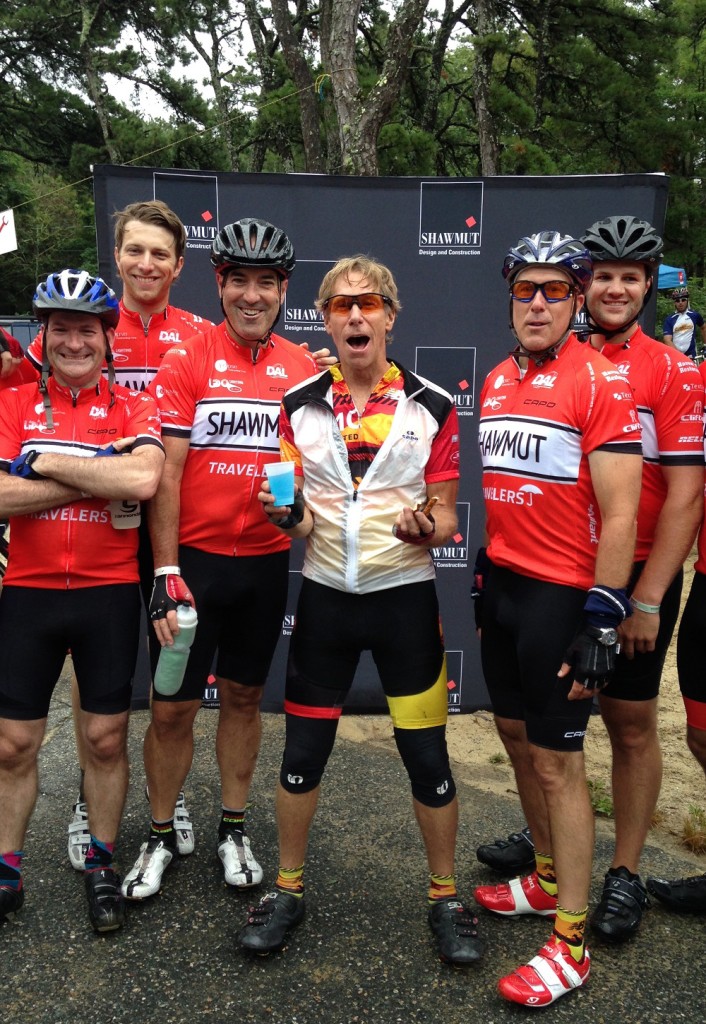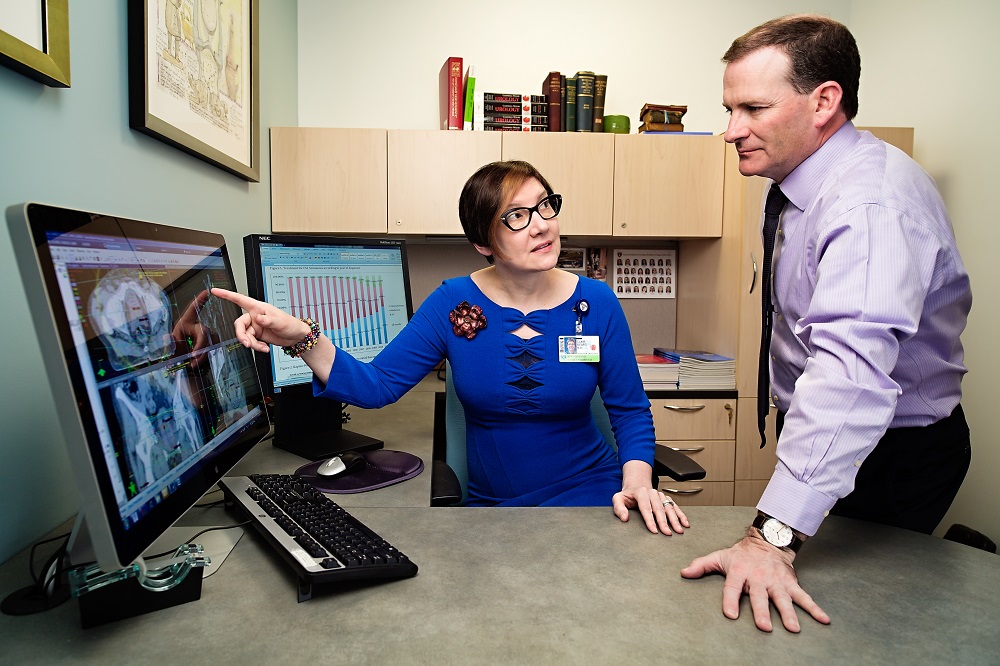Since 1980, more than 88,000 cyclists have taken to Massachusetts’ roads for the Pan-Mass Challenge (PMC) to raise funds for cancer research and patient care at Dana-Farber. Among the riders are many patients, their family members, and their doctors. Christopher Sweeney, MBBS, medical oncologist in Dana-Farber’s Lank Center for Genitourinary Oncology, is one of them. We recently spoke with Dr. Sweeney about what motivates him to ride.

Why did you start riding the PMC?
In addition to treating patients with genitourinary cancers, particularly prostate and testicular cancer, I do clinical and translational research, with a focus on trying to find out why some patients relapse after treatment and others don’t. I receive funding from the National Institutes of Health and other government sources, but most of the funding that allows my research to really move forward comes from philanthropic support, like the PMC.
I was introduced to Team Shawmut [a team of 24 employees and supporters of Shawmut Design and Construction who have ridden since 2008] by a patient of mine who rides with the team. Several years ago, he suggested they direct the money they raise toward my research program. I also gave a speech before the 2013 ride, and this inspired me to get involved. Last year was my first ride. I’d never even owned a road bike before, but I rode with them for 192 miles over the course of two days. Mostly they rode ahead of me and I caught up, but I had a great time!
How does your PMC participation relate to your research at Dana-Farber?
The money we’ve raised through Team Shawmut has enabled my research team to collect testicular cancer tumor samples and analyze them with DFCI researchers, working in collaboration with the Broad Institute of Harvard and MIT to better understand which patients are likely to have recurrences. We’re hoping to identify these patients before they relapse so we can give them less intense, more effective treatment. This project is a huge team effort; we have medical oncologists and research fellows helping collect and annotate the specimens, pathologists to process the specimens, and a research team to analyze the samples. In the next few months we’ll have the first data set looking at the genes in testicular cancer patients who have been cured against those who have not.

Money raised through the PMC has also helped advance research related to my study showing that, for metastatic prostate cancer patients, chemotherapy plus hormonal therapy was more effective than hormonal therapy followed by chemotherapy. This study has changed the way we treat prostate cancer throughout the world, and additional studies analyzing why the combination is so effective would not be possible without philanthropic dollars.
What’s your favorite thing about the PMC?
Team Shawmut is a delightful group of people, including five patients of mine, and riding in the pace line with them is a great feeling. The camaraderie of the team is fantastic.
Participating in the ride has also helped me stay fit. I always talk to patients about the importance of exercise and wellness as part of their cancer care management, and now I’m practicing what I preach.
